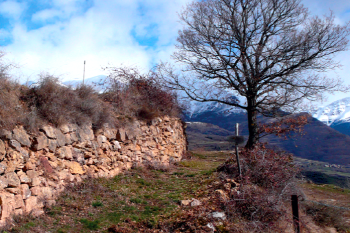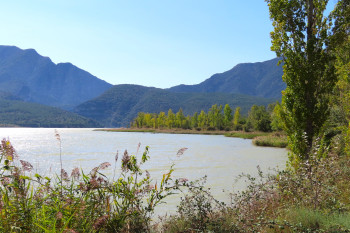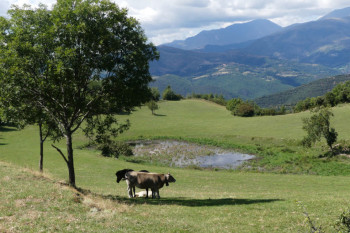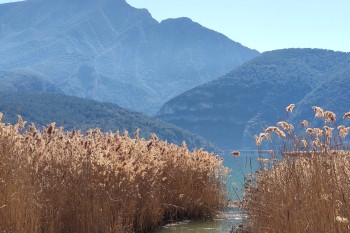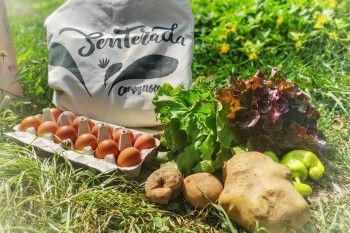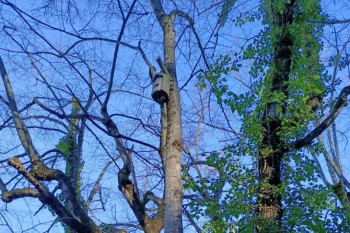Castell d'Encús micro-reserve 2023-2024
Micro reserve : Microreserva de Castell d'Encús
Join Castell d'Encus project and combine the excellence of wine-making with the conservation and management of local environment.
Cause accomplished
Aquesta causa ja no admet noves donacions.
Promoted by:
Celler Castell d'Encus
See moreDescription
Located in Castell d’Encus, the microreserve is made of two sectors: one with the cellar, located on La Costa Ampla mountain (Talarn) ; and another one located near the village of Santa Engràcia. Apart from the vineyard, the domain has 71 ha of wood with typical Mediterranean vegetation.
The microreserve combines the excellence of wine-making in a mountain area with the conservation of the environment and is aimed at protecting local biodiversity and disseminate it to raise awareness of the importance of its conservation.
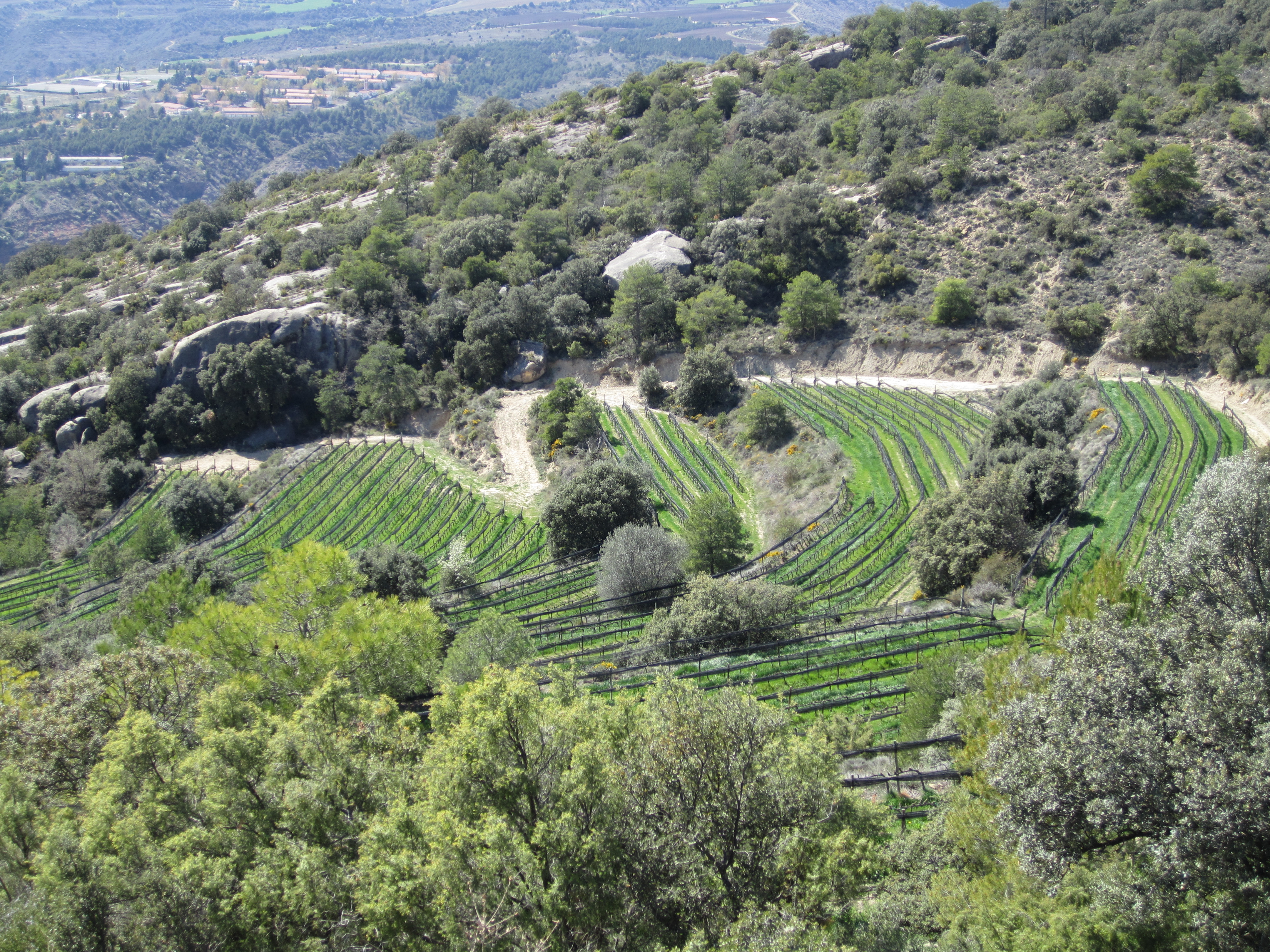
Launched in 2011, the actions a now divided in three main parts :
-
Activities related to vine handling, in a totally eco-friendly way.
-
Management of the forest area in order to improve the habitat for the animals and to reduce the risk of large forest fires.
-
Actions carried out in favour of the biodiversity of the domain.
This last point includes the following actions:
- Installation of fixed drinking troughs for small- and medium-sized animals that can be refilled with rainwater. The microreserve is located in a very dry area with scarce and distant water points, which considerably reduces the density of species with low mobility such as arthropods, micromammals, lagomorphs or small birds. The troughs that were chosen are made of concrete, maintain the good quality of water and have a minimal impact on landscape. The cover of the toughs collects the rainwater in a way that they get refilled with a simple drizzle. The installation is foreseen to be done in 2024.
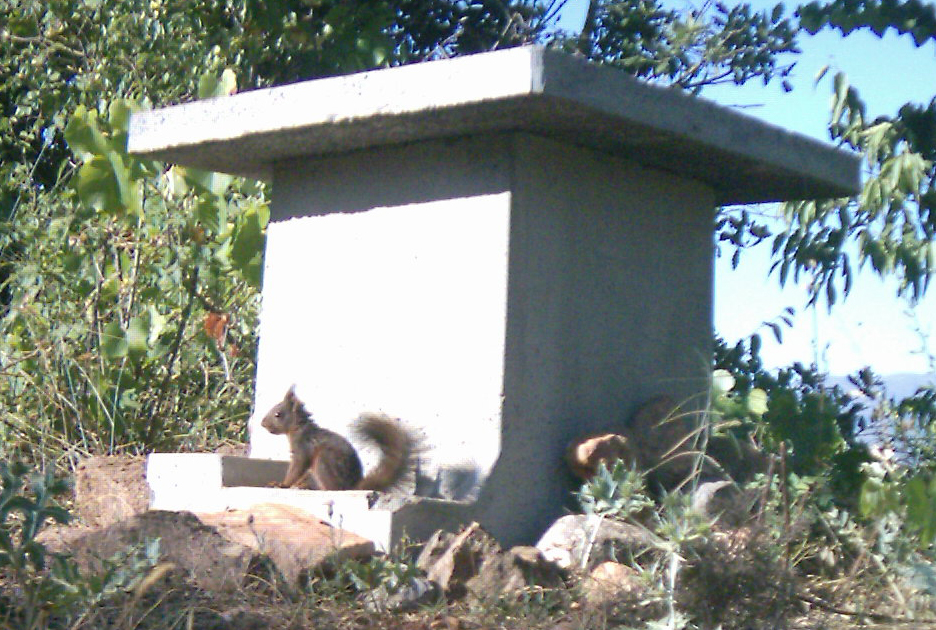
- Plantations of indigenous flora and species of bushes such as snowy mespilus (Amelanchier ovalis), common hawthorn (Crataegus monogyna), elder (Sambucus nigra) and English ivy (Hedera helix), which produce wild fruit that is very attractive to animals, especially to migratory and hibernating birds. These plantations around the cellar or on the herbal areas that separate the vines will be beneficial for both the fauna of these habitats and for the ecosystem of the microreserve in general.
Promoted by:
Celler Castell d'Encus
See moreDescription
Located in Castell d’Encus, the microreserve is made of two sectors: one with the cellar, located on La Costa Ampla mountain (Talarn) ; and another one located near the village of Santa Engràcia. Apart from the vineyard, the domain has 71 ha of wood with typical Mediterranean vegetation.
The microreserve combines the excellence of wine-making in a mountain area with the conservation of the environment and is aimed at protecting local biodiversity and disseminate it to raise awareness of the importance of its conservation.

Launched in 2011, the actions a now divided in three main parts :
-
Activities related to vine handling, in a totally eco-friendly way.
-
Management of the forest area in order to improve the habitat for the animals and to reduce the risk of large forest fires.
-
Actions carried out in favour of the biodiversity of the domain.
This last point includes the following actions:
- Installation of fixed drinking troughs for small- and medium-sized animals that can be refilled with rainwater. The microreserve is located in a very dry area with scarce and distant water points, which considerably reduces the density of species with low mobility such as arthropods, micromammals, lagomorphs or small birds. The troughs that were chosen are made of concrete, maintain the good quality of water and have a minimal impact on landscape. The cover of the toughs collects the rainwater in a way that they get refilled with a simple drizzle. The installation is foreseen to be done in 2024.

- Plantations of indigenous flora and species of bushes such as snowy mespilus (Amelanchier ovalis), common hawthorn (Crataegus monogyna), elder (Sambucus nigra) and English ivy (Hedera helix), which produce wild fruit that is very attractive to animals, especially to migratory and hibernating birds. These plantations around the cellar or on the herbal areas that separate the vines will be beneficial for both the fauna of these habitats and for the ecosystem of the microreserve in general.
Cause accomplished
Aquesta causa ja no admet noves donacions.
